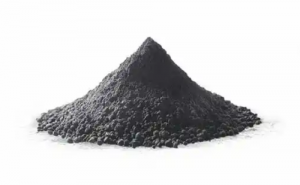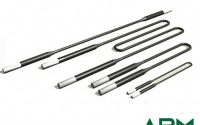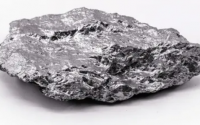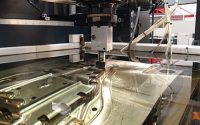Molybdenum Powder: Applications and Manufacturing Processes
Introduction
Molybdenum is a transition metal known for its remarkable properties. It plays a pivotal role in various industries owing to its versatility and resilience. The molybdenum powder becomes a cornerstone material in the production of advanced alloys and drives innovation across sectors.
This article aims to delve into the applications of molybdenum powder and its intricate manufacturing processes. Hope that we can shed light on its significant contributions to modern industrial advancements.

The Applications of Molybdenum Powder:
1. Aerospace Advancements:
The aerospace industry relies extensively on molybdenum-infused alloys. These alloys have their exceptional strength-to-weight ratio, heat resistance, and corrosion resilience.
They serve as integral components within aircraft engines, structural parts, and propulsion systems. Molybdenum-enhanced alloys contribute to lightweight yet robust components that withstand extreme conditions, elevating aviation technology.
2. Energy Production:
Within the energy sector, Mo powders find crucial applications in power generation facilities. These alloys exhibit remarkable resistance to high temperatures and aggressive environments. So, they are ideal for constructing turbines, reactors, and components within power plants. Their reliability ensures consistent energy production and safety.
3. Industrial Machinery and Manufacturing:
Manufacturing industries leverage molybdenum-infused alloys for their machinery and equipment. They excel in environments subjected to harsh chemicals, elevated temperatures, and mechanical stress. Extrusion dies, furnace components, and high-strength tooling benefit from the durability and resilience provided by Mo powders.
4. Medical Applications:
Biomedical engineering relies on the biocompatibility and corrosion resistance of molybdenum. They are utilized in medical implants, prosthetics, and biomedical devices due to their inertness within the human body. These strengths ensure reliability and safety in medical applications.
Related reading: Molybdenum Powder Types & Applications
The Manufacturing Molybdenum Powder:
The production of molybdenum powder involves several steps. The manufacturing starts from molybdenum ore to the final powder form. Here’s an overview of the process:
1. Mining and Extraction:
Mo powder is primarily obtained from the ore. The mining process starts with crushing the ore. Then, you need to separate the molybdenite from the other minerals through a flotation process or roasting.
2. Roasting and Conversion to Molybdenum Trioxide (MoO3):
The concentrated molybdenite is roasted in air to convert the sulfide ore to molybdenum oxide (MoO3). The resulting MoO3 is then purified through chemical processes to remove impurities.
3. Reduction to Molybdenum Oxide Powder:
The MoO3 is further processed through a reduction process. One common method is heating the MoO3 in the presence of hydrogen gas. So, we can reduce it to molybdenum oxide powder (MoO2).
4. Thermal Decomposition to Molybdenum Metal:
The molybdenum oxide powder undergoes a thermal decomposition process in a hydrogen atmosphere at high temperatures. It is typically over 1,000°C (1,832°F). This process reduces the molybdenum oxide to molybdenum metal powder.
5. Grinding and Milling:
The resulting metal may undergo grinding and milling processes to achieve the desired particle size and consistency. This step ensures uniformity and control over the powder’s physical properties.
6. Purification and Quality Control:
Quality control measures follow. So, we can ensure the purity and quality of the molybdenum powder. Thereafter, we apply purification steps to eliminate any remaining impurities.
7. Packaging and Distribution:
First, the molybdenum powder should meet quality standards. Then, it is packaged according to specifications and ready for distribution to industries.
Conclusion:
Molybdenum powder’s multiple applications and intricate manufacturing processes underscore its significance across diverse industries. Its integration into high-performance alloys redefines the boundaries of durability, efficiency, and safety in the modern industrial landscape.
Advanced Refractory Metals (ARM) stands as a reliable source for Molybdenum Powder (Mo Metal Powder). This versatile powder finds application in crafting metal products, machine parts like wires, sheets, sintered alloys, and electronic components. For more information, please contact at https://www.refractorymetal.org.



